Our regions and cities face many challenges that are the same and that do not stop at borders.
They also share many opportunities and potentials.
With our Interreg funds we help them work together beyond borders to ultimately become more attractive places to live in.
We encourage and support cooperation in central Europe on crucial and urgent topics. Our transnational projects build capacities of public and private stakeholders for more effective policies, actions and investments. Together they develop and test solutions to protect our cultural and natural heritage, to reduce our carbon footprint and to improve the way that people connect and goods move around.
By the end of 2019, all our programme funds had been allocated. A last call for project proposals was organised under the headline "Capitalisation through coordination" and represented an important milestone of programme implementation: Projects approved in this experimental call will help regions and cities to better capitalise on already existing knowledge and solutions, which was developed in the past years with funds from Interreg and other instruments.
Million ERDF
Programme
countries
Thematic
Priorities
Specific
Objectives
138
projects
100%
of funds allocated
strategies and
action plans adopted
pilots
implemented
NEW TOOLS AND
SERVICES applied
trainings
provided
The Interreg CENTRAL EUROPE output library is the place where we provide access to all research, solutions and products developed by our projects. The library is web-based and free to use for everyone. It collects case studies, surveys, analyses, strategies, guidelines, tools, training materials and many other interesting products for policy makers and implementers.
Innovation
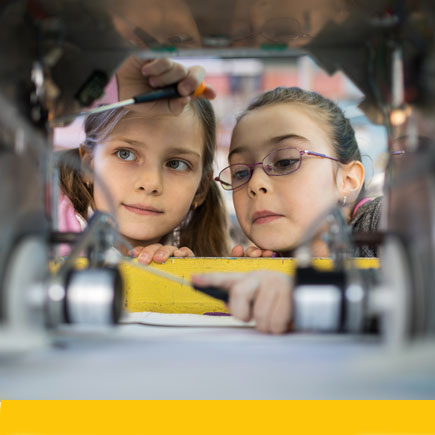
If you associate a FabLab with just 3D printing, you have probably not yet been to one. Modern fabrication laboratories offer much more. They are spaces where everyone can create and invent something new. They became popular after demonstrating their benefits for the prosthetics industry, when they dramatically pushed down the costs of leg prosthesis.
Today, FabLabs also offer a more comprehensive support for innovative start-ups. The level of support could recently be elevated through a new network of FabLabs...
Energy efficiency
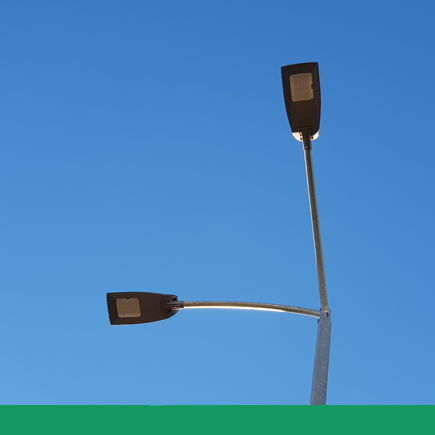
Europe is one of the most light-polluted areas on our planet. Almost 60% of Europeans live in areas where the night sky is already so bright that the Milky Way is rendered permanently invisible, says the World Atlas of Artificial Night Sky Brightness.
In recent years, stricter policies have come into force that aim to reduce overall energy use. Partners in our CitiEnGov project help regions in central Europe to find solutions to use their energy resources more consciously in line with these new policies. They cooperate on low carbon energy planning...
Cultural heritage
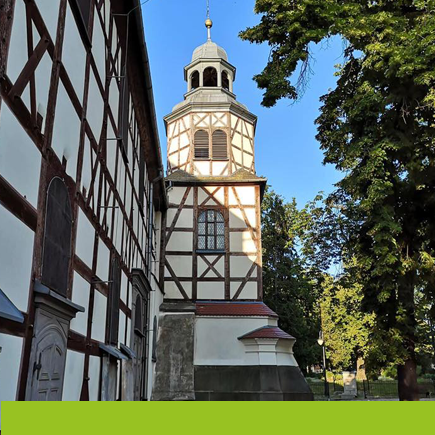
What connects the Chanforan Monument in Piemonte (IT), the Evangelical Church of Peace in Jawor (PL) and the Wartburg Castle in Eisenach (DE)? It is the new Route of Reformation, which was established in a transnational cooperation effort.
The three places played an important role in the reformation movement that, during the Middle Ages, represented a revolution in the Christian world. Thanks to the ECRR project partners, all these sites and many more are now part of one cultural route that offers visitors a journey....
Transport
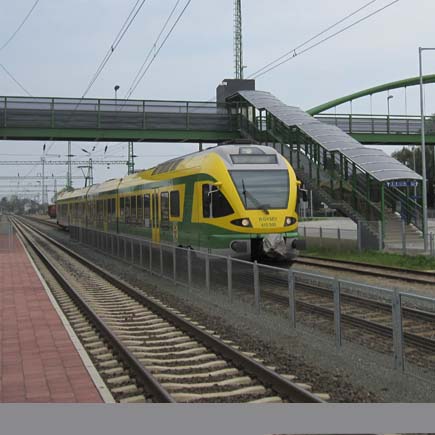
Town twinning started after World War II. The idea was simple: to reconcile relationships ruined by war. The coming together of communities helped create a peaceful post-war Europe. But are twin towns still relationship-builders?
Although Szombathely (HU) and Oberwart (AT) maintain a twin-town relationship and are only 40 km apart, it is nearly impossible to travel from one to the other with public transport. Maps suggest that it is easier and faster to travel this distance on foot.In a recent debate in Hungarian Parliament...
In December 2019, the programme selected nine new cooperation projects for funding.
In early 2020, these started to capitalise on results from previous Interreg and other EU-funded projects.
The newly approved projects cover all topics that were open.
Read more about our experimental call.
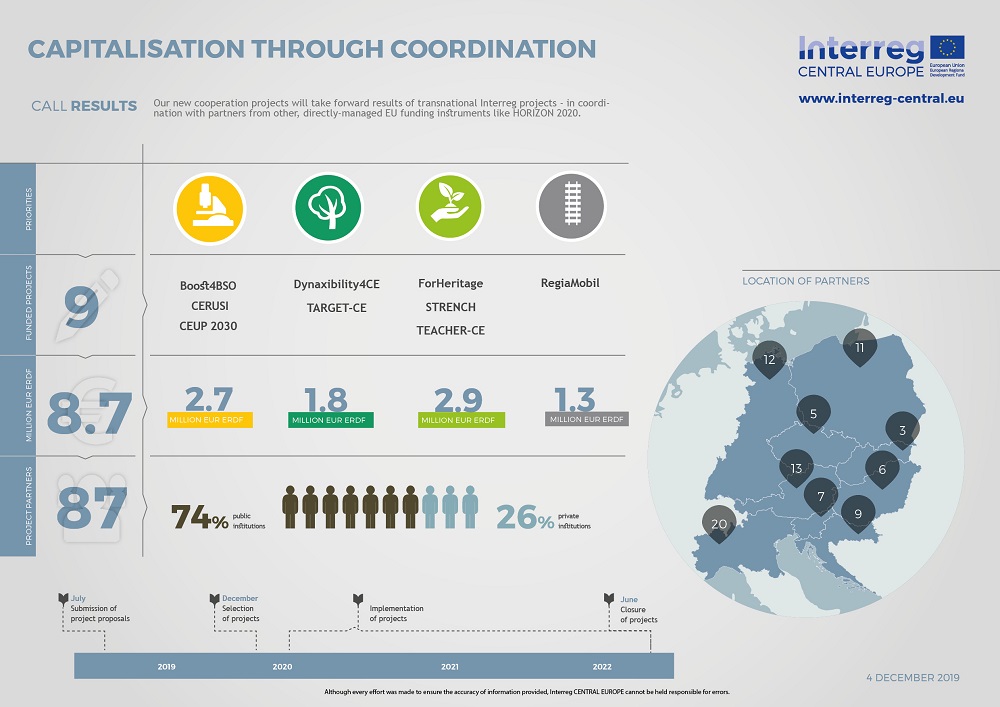
In 2019 we also completed our operational programme evaluation. External experts positively assessed the effectiveness and efficiency of the programme management system and related structures. They concluded that the programme is managed smoothly and well on track with planned activities and established targets. In their interviews with programme stakeholders, the following assessment was given by the European Commission:
“Interreg CENTRAL EUROPE is ahead of most Interreg programmes when it comes to the
effectiveness and efficiency of programme management”.
- European Commission
Interreg CENTRAL EUROPE has supported transnational cooperation in central Europe for more than 20 years. Since 2018 we have been taking our cooperation forward again. Together with our partners we want to make sure that also in the next programming period 2021-27 we can continue to proudly say that #cooperationiscentral for a better future.
In 2019, preparations for the future proceeded steadily: a working group with representatives from the programme countries was formally established and the City of Vienna was confirmed as Managing Authority for the new programme. Another highlight was the finalisation of the external territorial analysis as a basis for developing the programme strategy.
Get involved in our future